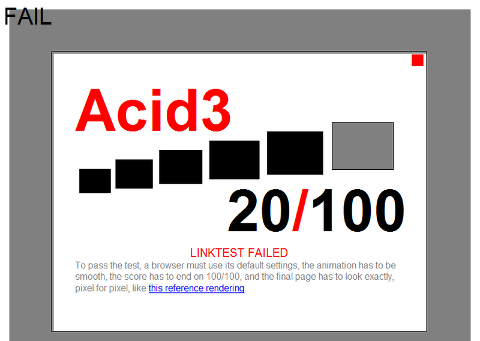10.28.11
Posted in FUD, GNU/Linux, Servers, Windows at 10:39 am by Dr. Roy Schestowitz
Children and nephews of Microsoft Corporation

Summary: The presence of Microsoft-friendly entities in the FLOSS (free/libre open source software) world stressed in the context of a new announcement
THERE are some particular companies and small firms that brush shoulders with those in the FLOSS world. Such firms often have roots in Microsoft and their goals align with Microsoft’s. This should not be surprising. Those who familiarise themselves with antitrust exhibits will soon realise that Microsoft strategises this way. It even uses words like “infiltrate”. Microsoft wants to tame and control its own opposition, e.g. by repelling and ousting elements in it (e.g. FSF) that are risky to Microsoft’s business goals.
Black Duck (see Wiki) is one of the companies that were created by a Microsoft marketing executive to now serve as a de facto authority on the subject of Free/open source software licences. The SFLC has publicly complained about bias in Black Duck and over the years we did a lot to explain what Black Duck is really doing (ignore all the PR which is very well laid out and repeated). Black Duck is a proprietary software company with proprietary software, software patents, Microsoft deals, and FOSS FUD. There is absolutely nothing there which is FOSS, except the data it is digesting to sell proprietary software for Microsoft Windows only. Black Duck is often marketed as “open” something, but it’s just a scam. It’s not open at all, these are just gymnastics in semantics. According to IDG, it wasn’t until now that Black Duck’s Code Sight software even ran on anything other than Microsoft’s own proprietary Windows platform. To quote:
Black Duck Code Sight 2.0, out now, is also the first version of the software to run on Linux servers, in addition to being able to run on Microsoft Windows servers.
Yes, so people can now run proprietary software on a GNU/Linux server for the purpose of scaring themselves because their proprietary software might be misusing Free software. Quite the FOSS advocacy tool, eh?
Black Duck is not alone in this business. One of their rivals, ‘Open’Logic (not open) is run by a guy from Microsoft. This whole monkey business has helped Microsoft validate its FUD against Free software code (while denying FLOSS firms their voice). Apparently it also makes some ‘former’ Microsoft executives rich, all at the same time. What a winning strategy. █
“You want to infiltrate those. Again, there’s two categories. There’s those that are controlled by vendors; like MSJ; we control that. And there’s those that are independent. [...] So that’s how you use journals that we control. The ones that third parties control, like the WinTech Journal, you want to infiltrate.”
–Microsoft's chief evangelist
Permalink
 Send this to a friend
Send this to a friend
10.01.11
Posted in GNU/Linux, Kernel, Microsoft, Novell, Servers, Virtualisation at 9:05 am by Dr. Roy Schestowitz

Summary: The Novell-Microsoft agreement still helps Microsoft ‘pollute’ open stacks and tax Linux
NOVELL was obliged to give Microsoft several big gifts in exchange for money, as we have shown over the years (it is right there in the contract too). One of those gifts was the pushing of Microsoft deep into the kernel, Linux. Jos does not like to talk about it. As OpenSUSE’s community manager and a paid employee he would rather ignore all those “hard” subjects and instead talk about happy news. But the matter of fact is, just as we repeatedly showed, Microsoft used Novell to make a hook for Microsoft inside Linux and now it is using this hook to interfere with GNU/Linux domination in so-called “clouds”. Microsoft tries to shove proprietary into open after help from its slaves at Novell/SUSE, as shown by this Microsoft booster who tries to put a positive spin on it.
“Microsoft is already making a fortune from “Linux tax”, which Novell helped standardise nearly 5 years ago.”The short story is (not to entertain the booster’s own spin), some people are trying to establish an open/free stack with Linux at the centre, so Microsoft exploits the hooks Novell planted in there (as per the contract) to make this stack Microsoft- and proprietary-dependent.
Well done, Novell. Microsoft is very proud. Microsoft is already making a fortune from “Linux tax”, which Novell helped standardise nearly 5 years ago. This is the legacy of Novell — a legacy we still need to cope with before it’s eradicated for good (or Microsoft goes out of business █
Permalink
 Send this to a friend
Send this to a friend
09.27.11
Posted in Novell, Servers at 10:00 am by Dr. Roy Schestowitz
Microsoft’s little baby

Summary: A quick walk through the news shows that “cloud” hype — not business freedom — is what Novell still offers to prospective customers
THE NOVELL of 2008-2010 was not the same as the older Novell, which still marketed “Open Source” rather than “Cloud Computing”.
Somewhere along the line Novell decided to de-emphasise its original selling point. This let Red Hat claim the higher moral ground, not just because it was not paying Microsoft for GNU/Linux. In this month’s news we are reminded of SUSE’s history: “The past few years have seen many open source companies being bought by proprietary ones. Back in 2003, Novell bought German Linux maker SuSE. A few years ago, Sun Microsystems bought database maker MySQL in a landmark $1 billion deal, and then last year, Sun Microsystems was itself snapped up by Oracle. One of the more recent deals is VMWare’s acquisition of Zimbra.”
Over time Novell made SUSE more and more proprietary, to the point where it is marketed as “cloud” OS, its source code is hard to obtain, and there is a shady patent deal elevating its cost.
Novelldemo has just uploaded about 10 more videos like this one video about a dead product, Vibe. Why bother? Maybe a marketing leftover. Either way, this too is an example of proprietary software from Novell, based on open source from another company (Google). It got marketed as “cloud” and failed to gain traction. Attachmate pulled the plug.
Another new article from the same source says: “”We built the platform ourselves, but adopted the Novell cloud manager. Business people provision resources on the fly,” says Richard Vester, head of hosted services at Vodacom Business.”
“Another similar product from Novell is just the repackaging of Red Hat’s product.”Cloud manager, eh? Be sure to check where it came from [1, 2]. Another similar product from Novell is just the repackaging of Red Hat’s product.
An additional new article states: “However the technology is used, shopping in a few years may not look much like shopping today.
““We hope so,” said Wilson, who worked for IT firm Novell for 21 years. “We’re counting on it.””
To be fair, the decisions at Novell came from managers consulted by marketing people, it is not the developers down the food chain who should be blamed. Developers often prefer to share their code, making it a source of pride, too.
Another article quotes Randy Hugie (program manager, certification and skills assessment at Novell) as saying: “Using the cloud, we implemented a 14-week, wide-scale partner academy.”
More cloud hype then. This other article which mentioned PlateSpin still plays along with those ideas. Novell bought some “cloud” stuff rather than vendors of Free/Open Source software. All that is left from Novell is legal mess, as we shall show later. █
Permalink
 Send this to a friend
Send this to a friend
09.20.11
Posted in GNU/Linux, Google, Microsoft, Servers, Windows at 1:05 pm by Dr. Roy Schestowitz

Acid3 results for Internet Explorer 8.0
Summary: Why Microsoft’s erosion in the server side (usage-wise, not revenue-wise) is likely to further motivate erosion on the desktop
HE WHO controls the back room will also dominate the client side, be it cellphones and desktops or whatever. It’s a well known fact and one that must really worry Microsoft.
Major Microsoft outages may lead to ASA intervention for false advertising. There is this new article about the Hotmail outage, sent to us yesterday by a reader. This whole downtime mess helps demonstrate what happens when one relies on Windows and other Microsoft products. Just watch how Microsoft fails to tackle ARM compatibility issues, even in the mythical Vista 8 which lacks support for browser plugins and is likely to suffer a backlash similar to Vista’s when it’s out in 2 or more years. It has been advertised since April 2009, 4+ years in advance (a time period throughout which a GNU/Linux distribution might have 8+ new versions released).
Going back to Web services, this is where GNU/Linux is clearly winning as we noted some days ago. The Inquirer has this to add:
Microsoft’s IIS webserver is the second most widely used webserver daemon after Apache. While it never occupied the top spot, at one point in 2007 it was starting to get close to Apache’s hugely popular webserver software. However since 2008, its market share plummeted and while it still manages to hold onto second place, there’s the best part of 50 percentage points difference between Apache and Microsoft’s IIS and the Vole’s IIS apparently is back to the level of market share that it saw in 1997.
Apache’s HTTPD webserver is popular for two reasons. It runs on just about every operating system out there, and it can be implemented in other products such as Oracle’s own application server products. Microsoft’s IIS, on the other hand, is closed source and runs only on Windows, so it’s no surprise that it lags behind Apache’s more robust and flexible sofware offering.
Microsoft failed so badly that it decided to just hijack Yahoo and eventually iinstalled a henchwoman there. Microsoft might be preparing to formally scoop up Yahoo! and maybe Nokia too, at least at a later stage (when it becomes cheap). Check out the news following Microsoft's passage of Nokia's patents to patent trolls (an antitrust issue):
Finnish mobile phone company Nokia has been deleted from the Stoxx Europe 50 index, a benchmark index owned by Deutsche Börse and the SIX Swiss Exchange Group that tallies the top 50 largest European corporations.
Late in August, Stoxx announced that Nokia would be delisted from the Stoxx 50 index, along with three banks: Intesa Sanpaolo and Unicredit from Italy, and GRP Societe Generale from France. Meaning the former powerhouse mobile phone maker is no longer big enough to be considered one of Europe’s biggest corporations.
Steve Ballmer keeps talking about Windows phones that don’t exist yet (see articles in the the previous post) and Microsoft is trying to make people think of about mythical versions of Windows rather than today’s version of Windows. What does that tell us? █
“In the face of strong competition, Evangelism’s focus may shift immediately to the next version of the same technology, however. Indeed, Phase 1 (Evangelism Starts) for version x+1 may start as soon as this Final Release of version X.”
–Microsoft, internal document [PDF]
Permalink
 Send this to a friend
Send this to a friend
09.17.11
Posted in Free/Libre Software, GNU/Linux, Servers, Windows at 6:07 am by Dr. Roy Schestowitz
Summary: Microsoft’s market share in servers is said to have slid to 1997 levels
FOLLOWING its malicious attack on Yahoo!, Microsoft became best evidence of its own demise on the Web. It no longer sought to create compelling products and make these available; instead, Microsoft tried to derail its competitors, preferably stealing their customers in the process. Once they got some crony installed, everything Yahoo! had which was of value to Microsoft got passed to Microsoft or put under the leadership of former Microsoft executives. According to this bit of news, Yahoo! is already well too infected by the Microsoft virus. “MALWARE DISTRIBUTORS have managed to get their rogue ads displayed on Bing and Yahoo when users search for popular software downloads,” says The Inquirer. “Since these ads always appear at the top of the page before the actual search results, and since the rogue websites they point to are near perfect copies of the real ones, the attack most likely has a high infection rate.”
This is why it’s good to limit Microsoft’s presence on the Web. It is nothing but trouble. In other interesting news, “Microsoft’s web server is losing ground” to the point where even Netcraft's flawed statistics show Microsoft approaching single-digit market share. To quote:
Apache has been the most widely used web server on the Internet since the early days of the Web. It still is. The second-most popular web server has been, and still is, Microsoft’s Internet Information Server, IIS. But Microsoft’s web server is now losing ground.
It wasn’t always like this. For quite some time, IIS was gaining ground on Apache, but the tide changed in 2007. Since then Apache has recovered much of its previous dominance, reaching a 65% market share, while the market share for IIS has dwindled below 16%, less than half of what it used to be. That’s a pretty steep drop, bringing the IIS market share back to what it was in 1997, 14 years ago.
In reality, based on the claims of some people, Microsoft’s real IIS market share was somewhere around 12%, whereas Apache and GNU/Linux market share in this area were all along impressive. In September 2008 Steve Ballmer was quoted as saying that “[f]orty percent of servers run Windows,” but he probably used flawed measures/methods. He would only wish for such a high market share. Where servers are concerned, Microsoft may be making money, but it’s not making much an impact. Zero-cost operating systems work a lot better and the Microsoft-taxed distribution, SUSE, is still niche product (for Microsoft lovers such as SAP). █

Permalink
 Send this to a friend
Send this to a friend
08.29.11
Posted in Microsoft, Security, Servers, Windows at 5:49 am by Dr. Roy Schestowitz

Summary: Rise in Windows traffic on the Internet, but not the desirable type of traffic (RDP attacks)
Check out this piece of news: [via]
It’s retro day in the world of Internet security, with an Internet worm dubbed “Morto” spreading via the Windows Remote Desktop Protocol (RDP).
F-Secure is reporting that the worm is behind a spike in traffic on Port 3389/TCP. Once it’s entered a network, the worm starts scanning for machines that have RDP enabled. Vulnerable machines get Morto copied to their local drives as a DLL, a.dll, which creates other files detailed in the F-Secure post.
SANS, which noticed heavy growth in RDP scan traffic over the weekend, says the spike in traffic is a “key indicator” of a growing number of infected hosts. Both Windows servers and workstations are vulnerable.
Bravo, Microsoft. █
Update: Incidentally, Nokia’s developer network has just been cracked. Based on some tests, the site runs Windows. Netcraft says it ran Windows, but it is now hiding behind Akamai (Linux). Some case sensitivity tests seem to confirm that It runs Windows.
Permalink
 Send this to a friend
Send this to a friend
08.24.11
Posted in Asia, Microsoft, Novell, Servers, Virtualisation, Windows at 6:30 am by Dr. Roy Schestowitz
Planted by Novell, used by Microsoft

Summary: Microsoft PR, along with Microsoft proponents masquerading as journalists, promote Microsoft’s latest manoeuvre whose purpose to extract money out of GNU/Linux in China
YESTERDAY we wrote about Novell's role in the Hyper-V infestation, which Novell was paid hundreds of millions to help advance. A lot of people may no longer remember how it came about, but we sure documented this over the years.
In its embrace-and-extend-like fashion, Microsoft currently uses what the now-defunct Novell helped create as a departure gift for Microsoft. Novell used to work hard for GNU/Linux tax (through SUSE) in China. But Microsoft has just announced in a press release that it will “help sell Hyper-V infused Linux distro in China,” says a Linux site. This was mostly covered by Microsoft boosters like Scott Fulton, IDG, and Mary Jo Foley who called it “legal covenant agreement” (as in patents too?). “Microsoft has signed a “legal covenant agreement” with Linux operating system provider China Standard Software Co. Ltd. (CS2C),” writes the Microsoft booster and other Microsoft proponents (e.g. Gates-funded Seattle Times which boosts Microsoft all the time) did the same thing to make it seem like Microsoft is a friend of GNU/Linux when it fact it’s working to tax GNU/Linux, thanks to the seminal work from Novell. █
Permalink
 Send this to a friend
Send this to a friend
08.23.11
Posted in Microsoft, Novell, Servers, SLES/SLED, Virtualisation, Windows at 11:14 am by Dr. Roy Schestowitz

Summary: More examples of the way Microsoft uses SUSE developers to put its Trojan horses inside the competition so as to grow from the inside
SEVERAL years ago and even last year we showed how Microsoft was using Novell as a back door for entering the HPC market, which is overwhelmingly dominated by GNU/Linux. Now, watch how Microsoft is using Novell’s implant for Microsoft (inside Linux) to create an unnecessary dependency on proprietary software. The whole Hyper-V nonsense that Greg K-H has been helping Microsoft advance is finding its way in a Linux-oriented market, leading to Microsoft partnerships and a drift away from software freedom. Novell has been nothing but trouble and SUSE is likely to be equally troublesome. Putting aside Microsoft’s and Novell’s Windows harmony (new YouTube videos), there is clearly some sort of attempt to embed Microsoft (and Microsoft tax) inside GNU/Linux. The question remains then, why would anybody choose SUSE over another distribution? And why would anyone attend the OpenSUSE events rather than broader scope events such as the recent one in Berlin? SUSE — like Novell — is like Microsoft inside the GNU/Linux world. It’s only serving itself. Boycott Novell and SUSE.
Permalink
 Send this to a friend
Send this to a friend
« Previous Page — « Previous entries « Previous Page · Next Page » Next entries » — Next Page »

























 Content is available under CC-BY-SA
Content is available under CC-BY-SA